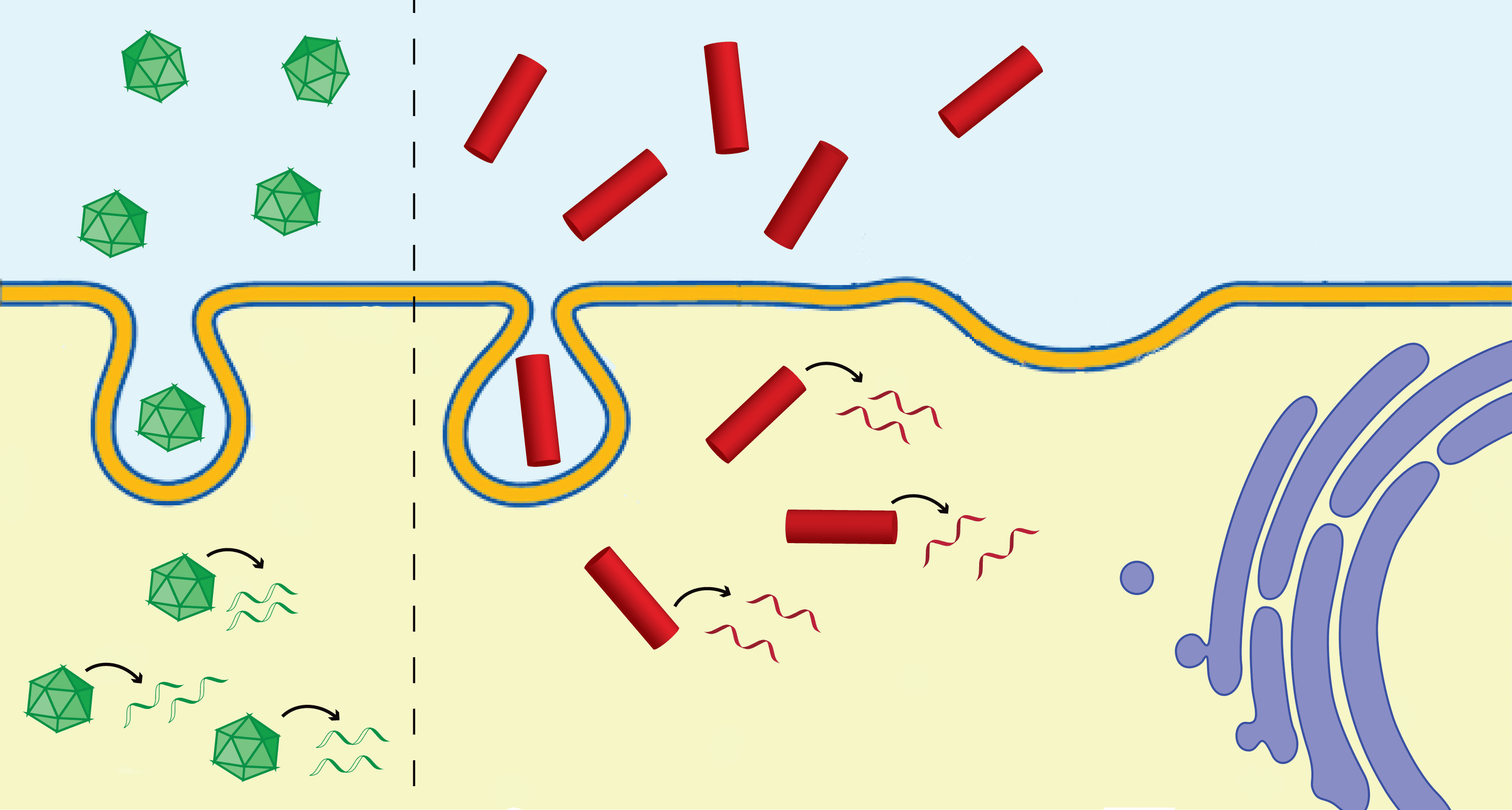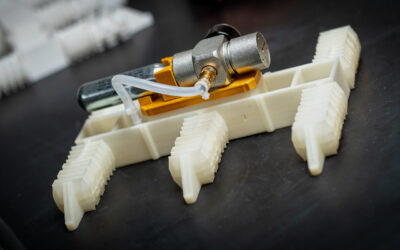With the sequencing of the human genome, the underlying genes that cause many diseases have been identified. With this knowledge, the building blocks of our genetic code, deoxyribonucleic acid (DNA) and ribonucleic acid (RNA), can be targeted as novel therapeutics. With nucleic acid therapeutics, we can alter the genetic information in our cells to help combat diseases. Examples of nucleic acid therapy include delivering a gene to replace a mutated copy of a gene in our body, or delivering a short RNA that can regulate expression of a gene that is overactive – the latter is a particularly powerful strategy for treatment of cancer to restore normal cell function. While nucleic acid therapy holds great promise, efficient delivery of nucleic acids to the site of disease is currently one of the biggest technological hurdles to overcome to make this therapy a clinical reality.
In the review article “Plant viral and bacteriophage delivery of nucleic acid therapeutics” in WIREs Nanomedicine & Nanobiotechnology, the authors discuss current delivery mechanisms of nucleic acids, and highlight the advantages of using plant and bacteria virus-derived nanoparticles. Contemporary delivery methods for nucleic acid therapy favor the use of mammalian viruses or synthetic particles, however there are safety concerns relating to the immunogenicity and potential genome integration of mammalian viruses, and synthetic particles often have reduced efficacy compared to viruses. These challenges have triggered researchers to investigate alternative delivery vehicles for nucleic acids. Plant virus and bacteriophage-based nanoparticles unite the advantages of both viral and non-viral systems. Plant viruses or bacteriophages do not replicate in or infect mammals, and therefore they are considered safer. Though their feasibility to deliver nucleic acids has been demonstrated, future work is required to establish translation efficacy. The use of plant viruses and bacteriophages to deliver therapeutic nucleic acids holds great promise for the next generation of personalized nanomedicine.
Text and figures kindly contributed by the authors.

















